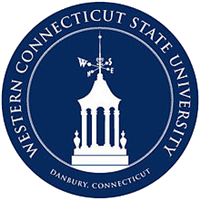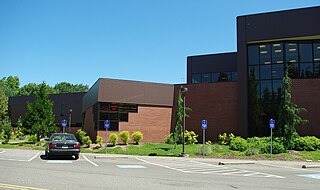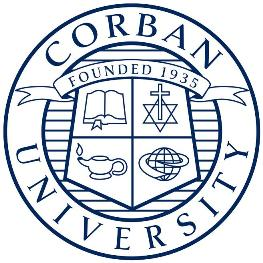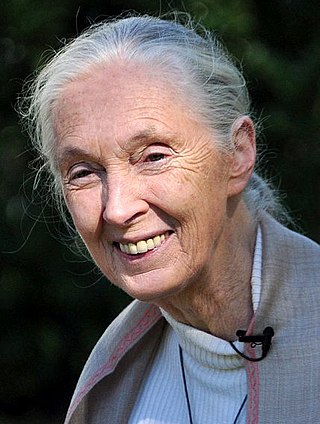
Dame Jane Morris Goodall, formerly Baroness Jane van Lawick-Goodall, is an English primatologist and anthropologist. She is considered the world's foremost expert on chimpanzees, after 60 years' studying the social and family interactions of wild chimpanzees. Goodall first went to Gombe Stream National Park in Tanzania to observe its chimpanzees in 1960.

Salem is the capital city of the U.S. state of Oregon, and the county seat of Marion County. It is located in the center of the Willamette Valley alongside the Willamette River, which runs north through the city. The river forms the boundary between Marion and Polk counties, and the city neighborhood of West Salem is in Polk County. Salem was founded in 1842, became the capital of the Oregon Territory in 1851, and was incorporated in 1857.

Western Connecticut State University is a public university in Danbury, Connecticut. It was founded in 1903 as a teacher's college and is part of the Connecticut State University System.

Keizer is a city located in Marion County, Oregon, United States, along the 45th parallel. As of the 2020 United States Census, its population was 39,376, making it the 14th most populous city in Oregon. It lies in the Willamette Valley, and is part of the Salem Metropolitan Statistical Area. It was named after pioneer Thomas Dove Keizur and his family, who arrived in the Wagon Train of 1843, and later filed donation land claims.
The following outline is provided as an overview of and topical guide to environmental studies:
Omaha North High Magnet School is a public high school located at 4410 North 36th Street in the city of Omaha, Nebraska. The school is a science, technology, engineering and mathematics (STEM) magnet school in the Omaha Public Schools district. North has won several awards, including being named a 2007 Magnet Schools of America "Magnet School of Excellence".

Chemeketa Community College is a public community college in Salem, Oregon, with a campus in McMinnville, and education centers in Dallas, Brooks, and Woodburn. In addition, the college has a Center for Business and Industry in downtown Salem that houses the Small Business Development Center. It operates classes and programs benefiting area businesses.

Corban University is a private Christian university in Salem, Oregon. There are about 1,000 full-time students enrolled on the Salem campus and 2,800 worldwide. Athletically, it is a member of the National Association of Intercollegiate Athletics competing in the Cascade Collegiate Conference.
Northgate is a neighborhood in Salem, Oregon, United States, located in the far north part of the city. It is one of Salem's larger districts and much of it is industrial rather than residential. Northgate has a neighborhood association, one of the nineteen such groups in Salem.
Lansing is a neighborhood in Salem, Oregon, United States, located in the northeast part of the city. The neighborhood is bordered on the north by Silverton Road, on the south by Market Street, on the east by Hawthorne Avenue, and on the west by Evergreen Avenue.

Douglas McKay High School, most commonly known as McKay, is a public high school located in the North Lancaster neighborhood of Salem, Oregon, United States. Built in 1979, the school was named after Douglas McKay, former Governor of Oregon and United States Secretary of the Interior.

The Jane Goodall Institute (JGI) is a global non-profit wildlife and environment conservation organization headquartered in Washington, DC. It was founded in 1977 by English primatologist Jane Goodall and Genevieve di San Faustino (1919-2011). The institute's mission is to improve the treatment and understanding of primates through public education and legal representation, to protect their habitats in partnership with local communities, and to recruit and train young people for these missions.
The Jane Goodall Institute (Hong Kong) (Chinese: 國際珍古德(香港)協會), founded in 2002, was established as a local registered charity involved in the promotion of the well-being of the community, animals and environment. The Jane Goodall Institute Hong Kong is one of the Asian branches of the Jane Goodall Institute which was founded in 1977 in California by Jane Goodall and Genevieve, Princess di San Faustino. With its headquarters in the US, the Jane Goodall Institute is a worldwide non-profit organization with 17 overseas offices.

Roberts High School is a high school in Salem, Oregon, United States. It provides non-traditional educational programs in the Salem-Keizer School District. Rather than a centralized campus, Roberts High School consists of departments at different sites in Salem and Keizer. These branch sites include the Downtown Learning Center, Structured Learning Center, Bridge, and Internet-based SK Online. In the 2006-2007 school year, over 1,000 students were enrolled in Roberts High School.
Salem-Keizer School District (24J) is a school district in the U.S. state of Oregon that serves the cities of Salem and Keizer. It is the second-largest school district in the state with approximately 40,000 students and nearly 4,000 full-time equivalent (FTE) employees. It serves more than 172 square miles (450 km2) of Marion and Polk counties.
Vicki Berger is an American businessperson and politician in the state of Oregon. A native Oregonian, she is a Salem civic leader and a former Republican member of the Oregon House of Representatives. Her father, Richard Chambers, came up with the idea for the Oregon Bottle Bill.

McNary High School (MHS) is the only public high school located in Keizer, Oregon, United States.

Roots & Shoots was founded by Jane Goodall, DBE in 1991, to bring together youth from preschool to university age to work on environmental, conservation, and humanitarian issues. The organization has local chapters in over 140 countries with over 8000 local groups worldwide that involve nearly 150,000 youth. Many of the chapters operate through schools and other organizations. Participants are encouraged to identify and work on problems in their communities affecting people, animals, or the environment. Charity Navigator has awarded Roots & Shoots and its parent non-profit organization, the Jane Goodall Institute, its highest four-star rating for accountability and transparency, with 78.1% of its expenses going directly to the programs.

da Vinci Arts Middle School, also known as da Vinci Middle School, is a public middle school in the Kerns neighborhood of Portland, Oregon, in the United States. It is an arts-focused school in the Portland Public School District. The building was originally used as a high school called Girls Polytechnic High School, then renamed James Monroe High School in 1967. The school closed in fall 1978 when its student body was merged into Washington High School.












